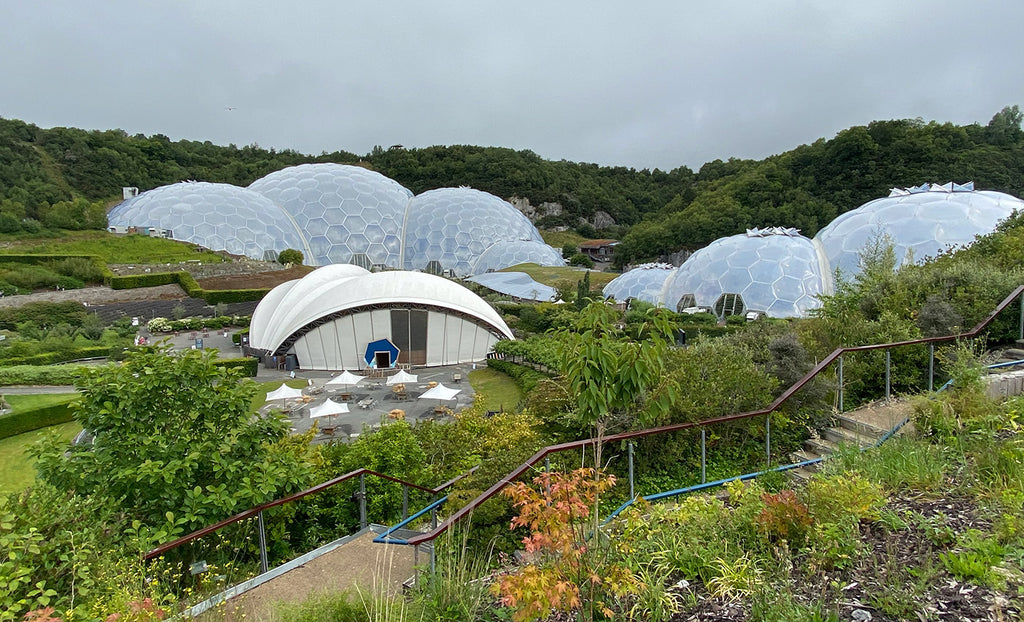Wacky Wednesday - The Eden Project - interesting info

In the late 1990s a small group gathered to talk about an idea – to create a place like nothing anyone had ever seen before; a place that explored our place in nature, a place that demonstrated what could be done if people who wanted to make a difference got together. They bought an exhausted, steep-sided clay pit 60 metres deep, with no soil, 15 metres below the water table, and essentially gave it life. Into it they brought a huge diversity of plants that we use every day but often don’t get to see, planted in soil made from ‘waste’ materials, watered by the rain, in giant conservatories and buildings that drew inspiration from nature.
The Eden Project is a sprawling structure built along the side of a deep pit. The structure comprises three biomes, areas designed to represent three distinct climates found around the world.
The Humid Tropics Biome, the most impressive section, is a multi-domed greenhouse that recreates the natural environment of a tropical rainforest. The warm, humid enclosure houses hundreds of trees and other plants from rainforests in South America, Africa, Asia and Australia. The dome is 787 feet (240 m) long, 180 ft (55 m) high and measures 360 ft (110 m) across at its widest point.
From the Humid Tropics Biome, visitors move on to the Warm Temperate Biome. The Warm Temperate Biome, which has the same multi-domed structure as the Humid Tropics Biome, houses plants from temperate rainforests around the world. Like tropical rainforests, temperate rainforests receive a high volume of rain every year, making them an ideal environment for varied plant life. But since they are farther away from the equator than tropical rainforests, they do experience distinct seasons (see How Rainforests Work for details). The Warm Temperate Biome at the Eden Project has varied plant life from temperate rainforests in Southern Africa, the Mediterranean and California.
The final stop in the Eden Project is the Roofless Biome, an open area with varied plant life from the temperate Cornwall area, as well as similar climates in Chile, the Himalayas, Asia and Australia. Visitors can learn about plants that have played an important role in human history by following nature trails that wind over 30 acres (12 hectares) of land.
The creators of the Eden Project see the site as far more than a collection of greenhouses. Their mission statement is to "promote the understanding and responsible management of the vital relationship between plants, people and resources, leading towards a sustainable future for all.” To this end, they have included informational kiosks and artistic installations throughout the biomes. They also hold a number of workshops and special events, all designed to inform people about environmental issues. To learn more about the Eden Project's mission, as well as its upcoming activities, check out the Eden Project Web site.


#naturalhomebrands #edenproject #ecofriendly #wackywednesday #rainforests
- Carole Zellers